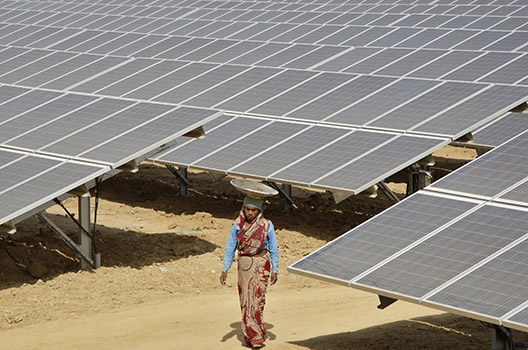Between September and December 2016, the Atlantic Council convened a high-level task force to examine the state of international energy governance, and to determine if and how the prevailing institutional regime could benefit from reform. The report of the Atlantic Council Task Force on Reform of the Global Energy Architecture, co-chaired by David Goldwyn and Phillip Cornell, represents the outcomes of those discussions—outcomes that are designed primarily to support decision-making within a new American administration, but also ones that are intended to resonate for practitioners of international energy policy across the globe.
The Task Force found that international institutions and governance continue to provide tangible benefits to an evolving global energy economy and to specific American interests. Promoting market stability, addressing market failures, facilitating trade and investment, and ensuring peace and security are enhanced by multinational cooperation.
Image: A worker walks through the installed solar modules at the Naini solar power plant in the northern Indian city of Allahabad March 21, 2012. The 5 MW capacity plant by the Electrical Manufacturing Company Ltd. (EMC) has started under the phase-1 of the Jawaharlal Nehru solar power mission, the Government of India and targets to supply 5.5 million to 90 million units of power to the grid, project manager Pankaj Kumar said on Wednesday. REUTERS/Jitendra Prakash (INDIA - Tags: ENERGY BUSINESS EMPLOYMENT)
